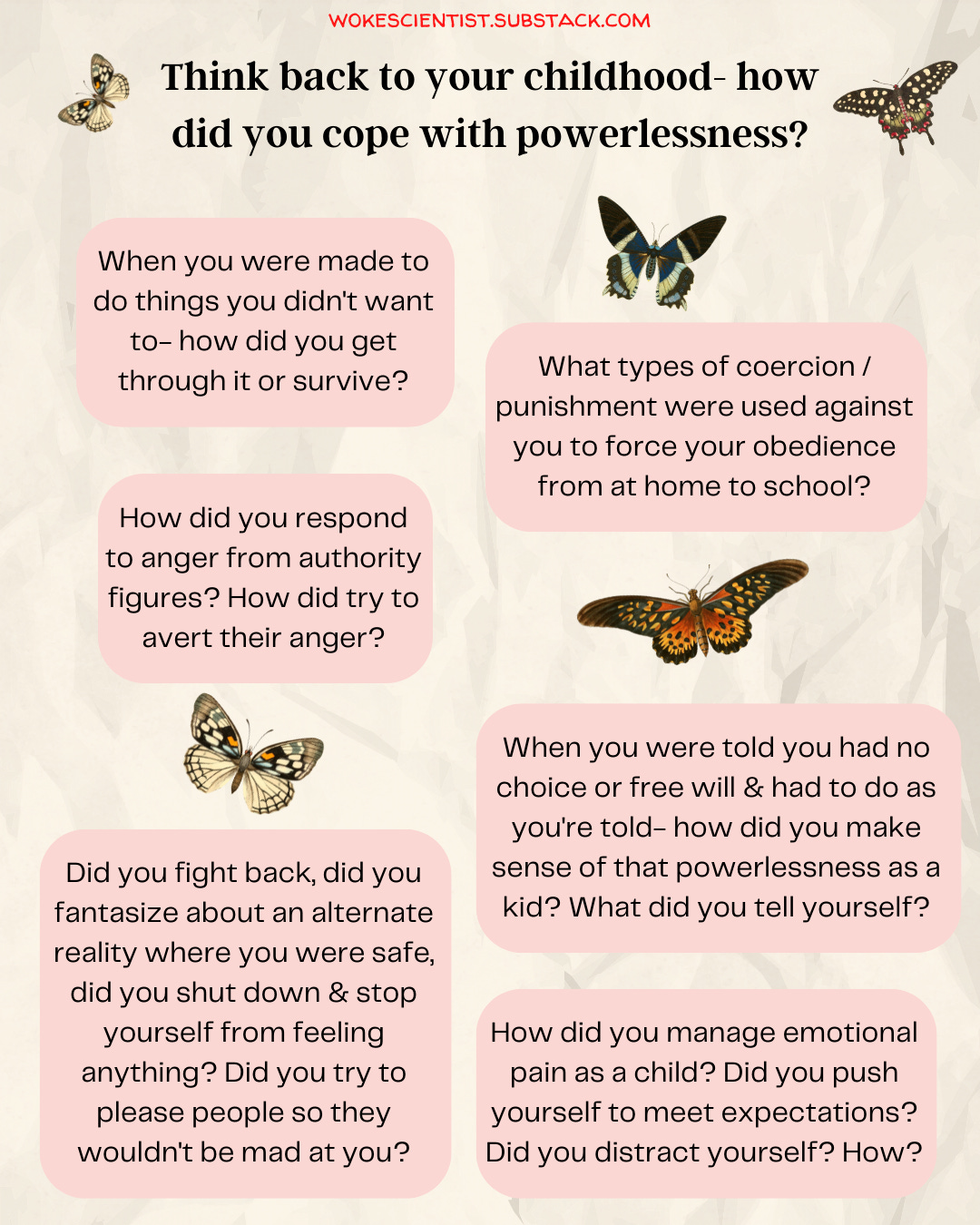Every time Friday rolls around I realize I’m more disassociated than I was on Monday. This seems to be a cycle at baseline where as the work week progresses, I become more emotionally numb, depersonalized, feel like I’m floating outside my body almost, watching myself robotically progress from one task to the other, waking up- going to work- coming home exhausted- sleep- wake up & repeat. BUT, there’s phases, periods of time, sometimes weeks or months where I’m even more removed, scattered, disoriented and fully “gone” to the point where I don’t have access to any emotions which eventually devolves into an existential crisis. I’m not just disconnected from myself, but also from my surroundings, other people, the air I breathe, the ground I walk on, my plants, everything. I’m severed from my ecosystem. I’ve realized these “spikes” have triggers- key events, exposure to certain oppressive norms/ dynamics, patterns that resemble a particularly painful aspect of my past which then push me into to completely disassociate for longer time frames until I recognize what is going on & begin playing detective to pull myself back. It’s taken me years to even recognize that this is what is actually going on when I feel like s**t- that I feel nothing & if its not a consistent phase, then it’s something that comes up sporadically when I face a distressing situation.
Let’s take a step back though- what are the sociopolitical roots of disassociation? How can we understanding the context of our distress and use political praxis to cope?
Disassociation is a survival mechanism for us since our childhood. We were socialized with oppressive values & norms that aim to force us into binaries and tell us what we must/ should/ have to do in order to “earn” the right to live. We’ve NEVER had any true safety, security or stability and we develop many coping mechanisms to bear this lack of control. How can we remain in our bodies if it is far too demeaning, dehumanizing and miserable to remain present? We disassociate because it protects us from the brutality of our reality. Recognizing how we’ve developed this as a coping tool helps us see how it shows up at baseline today but intensifies at the onset of particularly painful, distressing moments of our lives.
What’s in the video? I use a personal example of a disassociative streak I’m in now to explain how to use political praxis to figure out what your “flags” or tell-tale signs are, track down situational/ systemic/ relational triggers that lead to spikes (more distress or incapacitation than baseline) and trace the origins & identify the sociopolitical context of the trauma response(s). I also talk about short-term grounding techniques and long-term micro-dosing on change to make intentional, sustainable interventions without living burnout to burnout or crisis to crisis. The written sections below explain how capitalist/ colonial systems shape our trauma responses using disassociation as an example.
P.S. Thank you to the kind souls that pay to support this newsletter, it exists because of you. Your funds will help sustain me & my political work. To upgrade your plan and become a paid subscriber, follow these simple steps.
Capitalism/ colonialism cuts people off from their community & land- a form of state-enforced disassociation
Watch with a 7-day free trial
Subscribe to Cosmic Anarchy to watch this video and get 7 days of free access to the full post archives.






